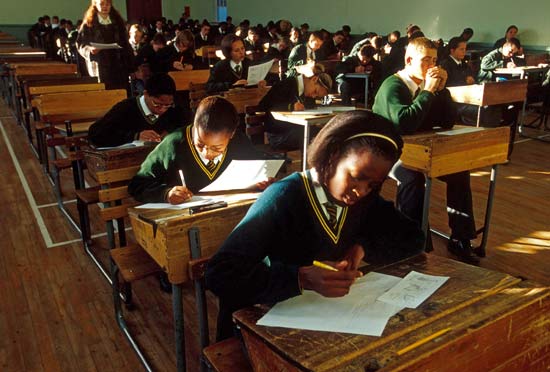África/SouthAfrica/17 Julio 2016/Fuente y Autor:southafrica
Resumen: El sector de la educación básica ha logrado avances significativos en la mejora del estado de la infraestructura en el país, según el Departamento de Educación Básica. El departamento dijo que particularmente se han hecho progresos en la prestación de servicios básicos, nuevas escuelas y la rehabilitación de los activos existentes.
Pretoria — The basic education sector has made significant progress in improving the state of infrastructure in the country, says the Department of Basic Education.
The department on Thursday said progress has particularly been made in the provision of basic services, new schools and rehabilitation of existing assets.
«The sector has built 684 schools from the period 2009/10 to 2015/16 and an additional 343 schools are planned for the period 2016/17 to 2018/19. The improved expenditure on infrastructure budgets and the number of completed projects in the last financial year is a clear indication of this progress,» said the department.
The department said the routine maintenance of school facilities in South Africa is generally not at an acceptable level, resulting in further deterioration over time. It said the neglect exposes learners to danger and costs the State more over time, as the conditions of buildings deteriorate and have to be replaced.
«To this effect, the sector is strengthening the maintenance of schools by ring fencing funds for the sole use of maintaining education facilities across the country and address the culture of neglecting the maintenance of our schools.
«The recruitment and appointment of built environment specialists in the provincial education infrastructure units to provide the technical expertise necessary to manage a programme of this magnitude is also yielding positive results, as there is significant improvement in the management and monitoring of the infrastructure portfolio,» said the department.
A normal functioning society, according to the department, is one in which the State ensures a stable environment through laws and proper governance, where the citizens have jobs or businesses that help improve the standard of living for all on a continuous basis and the people are free to marry, raise their children and ensure that mankind thrives.
«This, more or less, is the life that we all should aspire to. Of course, building a nation requires skills and know-how. Improving year after year means that the nation is learning new things, so that the quality of lives of its citizens improves and the nation is able to trade with other nations and remains competitive.
«This life is possible for all South Africans. All that is required is one simple thing: education. In modern times, everything rises and falls on education and the delivery thereof is made much easier when the facilities are available.
«At the Department of Basic Education, we have two programmes whose sole focus is to provide the facilities that will help us all get an education,» said the department.
Accelerated Schools Delivery Initiative
The department said the objective of the Accelerated Schools Delivery Initiative (ASIDI) is to replace all schools built from inappropriate material and to provide basic services of water, sanitation and electricity to those schools that previously had none.
«When the State looks and makes money available for this kind of work, it is paying a dividend of democracy to the people who live in the country. The struggle that the majority of our people participated in so well and with so much sacrifice was aimed at ensuring that our children would get a better education than the Bantu education that our parents received,» said the department.
Through ASIDI alone, the department has built and delivered 163 state-of-the-art schools since the programme’s inception in 2011.
«Government employs a full team of experts, who work to design and deliver these schools that give our children science labs, computer labs, nutrition centres, rain water harvesting tanks, decent sanitation, administration blocks with staff rooms and offices for educators and dedicated Grade R centres that allow us to lay the right foundation for our children to have the best possible chances for success.
«Over and above this, the initiative has provided water to 596 schools, sanitation to 414 schools and electricity to 307 schools that previously had none. This is an investment in the future of South Africa.
«The ASIDI Programme will continue to restore the dignity of rural education with the official handovers of Ntsu Secondary and Bethlehem Combined Schools in Bethlehem, Free State on 18 July 2016,» said the department.
Fuente de la noticia: http://southafrica.shafaqna.com/EN/ZA/641725
Fuente de la imagen:http://www.thesouthafrican.com/wp-content/uploads/2012/04/education-exam.jpg





 Users Today : 47
Users Today : 47 Total Users : 35459953
Total Users : 35459953 Views Today : 53
Views Today : 53 Total views : 3418518
Total views : 3418518